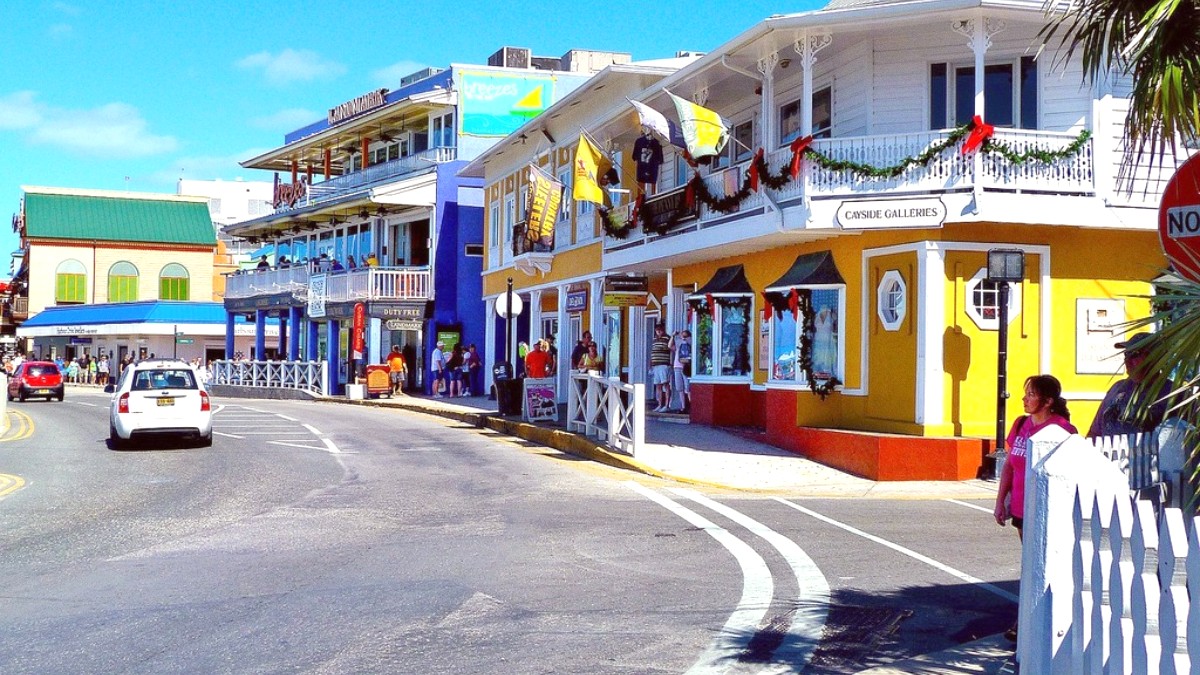
Cayman Islands
The island experiences two main seasons:
Dry Season (November to April): This period presents lower humidity, less rainfall, and pleasant temperatures. Average temperatures range from 75 to 85 degrees Fahrenheit (24-29 degrees Celsius). This season is generally considered the peak time for tourism. Days are mostly sunny with comfortable breezes, making outdoor activities appealing.
Wet Season (May to October): This season presents higher humidity, warmer temperatures, and increased rainfall. Average temperatures are typically 85 to 90 degrees Fahrenheit (29-32 degrees Celsius). Rain often comes in short, heavy showers, which quickly give way to sunshine.
While there is more rain, it rarely spoils an entire day. The combination of high heat and humidity during the wet season can feel intense.
June 1 to November 30
Travel insurance with hurricane coverage is highly recommended. Local authorities have preparedness and evacuation plans.
August, September, and October have peak hurricane activity.
Mid-December to April
Weather is ideal with abundant sunshine, cool breezes, and low humidity. Perfect for beach and water sports.
Prices for accommodation and flights are highest. Expect larger crowds, requiring advance bookings.
May-June & November-Mid-December
Good weather remains. Crowds are fewer than in the high season. Accommodation prices begin to drop, offering better value.
The chance of rain increases later in the May-June period. November marks the beginning of the hurricane season.
Excellent visibility and warm water make these activities enjoyable year-round. The best visibility typically appears in the dry season (November-April) due to less rainfall runoff.
Beach activities stay comfortable at any time, but most pleasant during the dry season with its lower humidity.
The dry season is preferable due to cooler temperatures and less mud on trails.
The glowing effect is best experienced during the darkest nights, coinciding with the new moon phase.
Tours operate year-round, so consult a moon phase calendar when planning this activity.
Plan activities during cooler parts of the day and stay hydrated, especially during the wet season.
Book in advance during high season due to limited availability.
The process appears straightforward for many nationalities.
Citizens of the United States, United Kingdom, Canada, European Union member states (Schengen Area), Australia, New Zealand, and many other countries do not require a visa for tourist stays up to 6 months. Citizens of countries not on the visa-exempt list apply for a visa through a British Embassy or Consulate.
No specific entry fees apply for tourists. Upon arrival at Owen Roberts International Airport (GCM), visitors proceed to immigration control. Present your passport and completed immigration form. Immigration officers may ask about the purpose and duration of your visit. The process is generally efficient.
Grand Cayman is a beautiful destination, and budgeting effectively helps you plan. The island can be expensive, but strategies exist to manage expenses.
Grand Cayman presents a safe environment for visitors, but understanding some health and safety guidelines proves useful.
No specific vaccinations are required from most countries. Yellow Fever certificate applies if from risk countries.
Recommended to be up-to-date on MMR, DPT, Polio, Hepatitis A and B.
Consult a travel clinic or your doctor 4-6 weeks before your trip.
Prevention is for a comfortable trip.
Sunburn and Heatstroke: Use high-SPF, Reef-safe sunscreen, wear hats and sunglasses, seek shade during peak sun hours. Stay hydrated.
Dehydration: The combination of heat and humidity leads to dehydration. Drink plenty of bottled or filtered water throughout the day. Mosquito-borne illnesses: Dengue fever and Zika virus are present. Use Insect repellent with DEET, wear long sleeves/pants at dawn/dusk.
Marine life: Be aware of potential hazards like jellyfish or fire coral. Wear Water shoes in rocky areas.
A state-of-the-art tertiary care hospital in East End, offering a wide range of specialties.
The main public hospital, offering emergency services and general medical care.
Numerous private clinics and dental offices are also available, especially near Seven Mile Beach.
The Cayman Islands have a low crime rate, specifically against tourists. Petty crime occurs in crowded tourist areas or at beaches. Exercise normal precautions: do not leave valuables unattended, be aware of your surroundings.
Keep a list of these numbers, your accommodation details, and your travel insurance policy number accessible.
Police, Fire, Ambulance: 911
Cayman Islands Hospital (HSA): +1 (345) 949-8600. Health City Cayman Islands: +1 (345) 640-4040
U.S. Consular Agency: +1 (345) 945-8173. British High Commission (Kingston, Jamaica): +1 (876) 936-0700